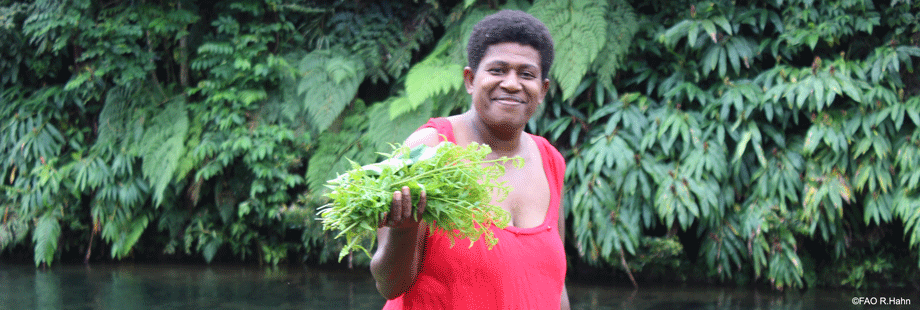The Asia Pacific has the highest growth rate globally, with trade, investments and technological innovations creating enormous wealth. However, vast swaths of the region suffer from entrenched poverty and the effects of climate change.
Income inequality and environmental degradation have gotten worse. Nearly 500 million people suffer from malnutrition. The coronavirus outbreak in early 2020 has propelled the region’s countries to make significant policy adjustments.
Data collection to help build capacity.
FAO is supporting a wide range of policy reformulations in light of COVID-19, including recovery programmes in food security and nutrition. FAO continues to support regional strategy development, investment in nutrition, and development of digital agriculture.
FAO also supports sectoral policy reforms and helps build capacity in data collection and SDG monitoring. Since March 2020, FAO began engagement with pilot countries, including Laos, Nepal and Papua New Guinea, on implementing the Hand-in-Hand Initiative.
· Transform the region’s rural and urban food systems against the backdrop of COVID-19. Assist countries to recalibrate food and agriculture policies to respond to hunger and malnutrition, while mitigating the economic impact of the pandemic. Develop evidence-based guidelines to help countries improve policy coherence and build more resilient and equitable food systems that can meet the needs of the poorest and most vulnerable people.
· Accelerate agricultural transformation and sustainable rural development under the Hand-in-Hand Initiative. Work with national stakeholders and public and private institutional partners to strengthen national ownership and capacities to accelerate progress to end poverty (SDG 1) and hunger (SDG 2) and promote rural development and economic growth. Enable evidence-based anticipatory approaches for accelerating investment to address emerging threats to food system functioning as COVID-19 continues to spread.
· Build countries’ capacity to collect and analyze data and improve national agricultural statistics services. Strengthen FAO’s partnership with organizations like the Asian Institute of Technology and the Asian Development Bank to boost countries’ capacity with data collection and analysis. Assist countries to use data from the Earth Observation to produce agricultural statistics. Continue to expand online courses to train government officials on cost-effective ways to produce agricultural statistics like GIS- or tablet-based data collection.
· Promote climate-smart agriculture to sustainably meet the food demand of growing populations. Strengthen countries' efforts to adopt climate-smart agriculture and related resilience-building technologies and practices. Support countries to share knowledge and develop mechanisms for managing risks of climate crises. Support countries to invest in human capital, so that smallholder farmers can also reap benefits from the digital revolution.
· Promote sustainable fishing and small-scale fisheries. Assist countries to develop a national plan of action to prevent and eliminate illegal and unregulated fishing. Work with countries to follow voluntary guidelines for securing sustainable small-scale fisheries in the region. Ensure that fisheries, agriculture and food security are integrated in national development framework, so that they contribute to the SDGs.






